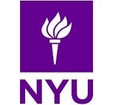Paper
View all working papersFeatured Posts
View all postsFeatured Press Posts
View all press posts
NYU News Profiles Civic Analytics’
311 Reporting Bias Study



Please fill out the information below to receive our e-newsletter(s).
*Indicates required.